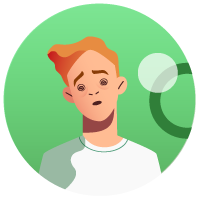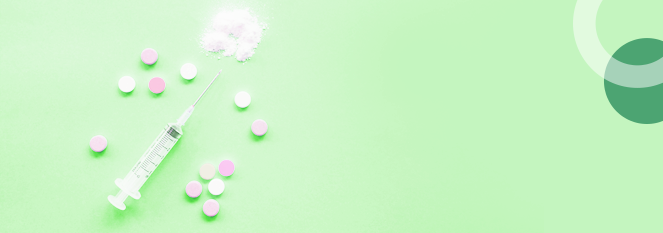Overview
- Opioid addiction is a chronic disease that can cause health and social issues.
- Opioids are a class of drugs that perform in the nervous system to develop a feeling of pleasure and pain relief.
- It's concluded that 23 percent of people have opioid addiction because they use heroin.
- Some opioids are legally prescribed by doctors to alleviate chronic and severe pain. Commonly prescribed opioids are oxycodone, fentanyl, methadone, morphine, codeine, hydrocodone, and oxymorphone.
- Opioids affect the brain chemistry and cause drug tolerance, which means that the dose needs to be increased with time to get the same results.


Opioids help treat many issues; toothaches and dental problems, surgeries, injuries, and chronic conditions such as cancer. Some cough medicine also contains opioids.
Opioids work by alleviating the pain signals your body sends to the brain and changing how the brain responds to pain. Though opioids are prescribed by a doctor to treat pain, their misuse may lead to opioid addiction and dependence, also called opioid use disorder.
Opioid Addictions Symptoms
Signs and symptoms of opioid addiction can be physical, behavioral, and psychological. A key sign of addiction is not being able to stop taking opioids.
Other common symptoms of opioid addiction are:
- Drowsiness
- Change in sleeping routine
- Weight loss
- Uncontrolled cravings
- Lack of hygiene
- Change in exercise habits
- Isolation
- Flu-like symptoms
- Decreased libido
- Depression and anxiety attacks
Opioid Addiction Causes
Opioid addiction causes are complex, and they result from a combination of environmental, and lifestyle factors.
Opioid drugs affect your brain by developing artificial endorphins. Besides restricting pain, endorphins make you feel good. Once your brain does this, it doesn't produce its endorphins. The more you use opioids, the more likely it happens. You will also need more opioids due to opioid tolerance.
Opioid Addiction Treatment
Opioid addiction is a chronic illness and should be treated on time. Opioid treatment is different from one person to another. The main purpose of treatment is to help you avoid opioid dependence. Your doctor can prescribe specific medicines to help relieve the symptoms. Medications for opioid addiction treatment include:
| Treatment | How does it help? |
| Methadone | Changes the way your nervous system and brain respond to relieve the pain. Their effects are slower than other painkillers. |
| Buprenorphine | Lowers the potential for misuse. It diminishes the physical effects of opioid dependence and increases safety in cases of overdose. |
| Naltrexone | Helps you prevent from relapsing (start using opioids again) and feeling high when you take opioids. |
| Behavioral Treatment | Helps you learn how to avoid opioids, deal with depression, and addiction, and heal broken relationships. |
Getting an Online Doctor Consultation through Telehealth Services at Omni Help
Many of you might not be in an area where you can access quick and efficient healthcare services. Others might have transportation issues or a physical disability. The COVID-19 pandemic has disrupted the normal functioning of many hospital services as well. You can easily consult a doctor, get a prescription, and suggestions on which tests to get online from a medical expert at Omni help.
You can access a qualified doctor online and have an online medical consultation in the safety of your own house.
If you want to talk to a doctor online right now or set up a virtual doctor appointment, click down below.
Many people take opioids without becoming addicted due to the high potential for addiction. It is true when you use opioids for chronic pain management. In general, you are more likely to prevent addiction, if you take opioids no more than a week. Using them for more than a month can make you dependent.
Your doctor or mental health professional can diagnose opioid use disorder. The diagnosis procedure will contain a comprehensive medical assessment. It also often includes mental health disorder tests.
Drug dependence and tolerance are an act of taking opioid drugs for a long time. You can be dependent on, or tolerant to, a drug and not addicted to it. Whereas addiction is a disease, and it's not normal. You are addicted to a drug when your body and mind can't function without the drug.
If someone around you experiences an opioid overdose, lightly tap, shake, and shout out the person to get a response. In case of no response, rub your knuckles on the person's breastbone. If the person responds, keep him or/and her awake and call 911.
If any of your loved ones seeking help for an addiction, the foremost step is to find a healthcare professional or physician. You can ask your physician for a referral to a medical professional. Meanwhile, assure them that addiction can be coped with the help of professional treatment by experts.
Opioid addiction does not have a clear pattern of inheritance, although many affected individuals have a family history of addiction to opioids or other substances. People who have family members with addiction appear to have a higher risk of addiction themselves.
Join Our Newsletter Now
Subscribe to get information about Omni Help
